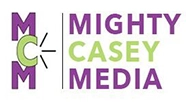Comcast has gotten itself into some deep kimchee – $4000 worth, to be exact – with the FCC over a video news release (VNR) it aired in September 2006 as a news piece on CN8’s “All About You” segment. CN8 is Comcast’s “news” station, and is a good example of how the intersection of a need to fill air-time with the ready availability of corporate PR video can cause fender-benders on the information highway…
First, there might be no such thing as bad publicity, but I doubt that the folks who make Nelson Rescue Sleep, the product being touted in the fine-inducing VNR, are entirely delighted with the headlines they’re getting today. Seeing a company’s name in a story about “fake news” can make a potential customer run for the exit to avoid getting ripped of by something “fake” – whether the actual product is snake oil or not.
Second, and more serious, is the further erosion of public trust in what they see on TV or in print labeled “news” – is it really news, or is it someone’s propaganda? Propaganda has been around since the first clique formed, right after there were more than two people on the planet. Everyone – individuals AND enterprises – wants to put their best face forward, to tell their best story. Problems arise, however, when any story is presented as fact without independent commentary or opinion. If you ask Allstate, they’re the best insurance company in the world – best service, best value, best coverage. But if you’re doing a survey of the insurance industry, you’ve gotta get input from State Farm, too – AND from independent analysts.
I’m all about a good story – but telling a story to attract customers is vastly different than presenting that story, stand-alone, as “news”. It ain’t news – it may be a great story, but it ain’t news.
That’s my story, and I’m stickin’ to it.



